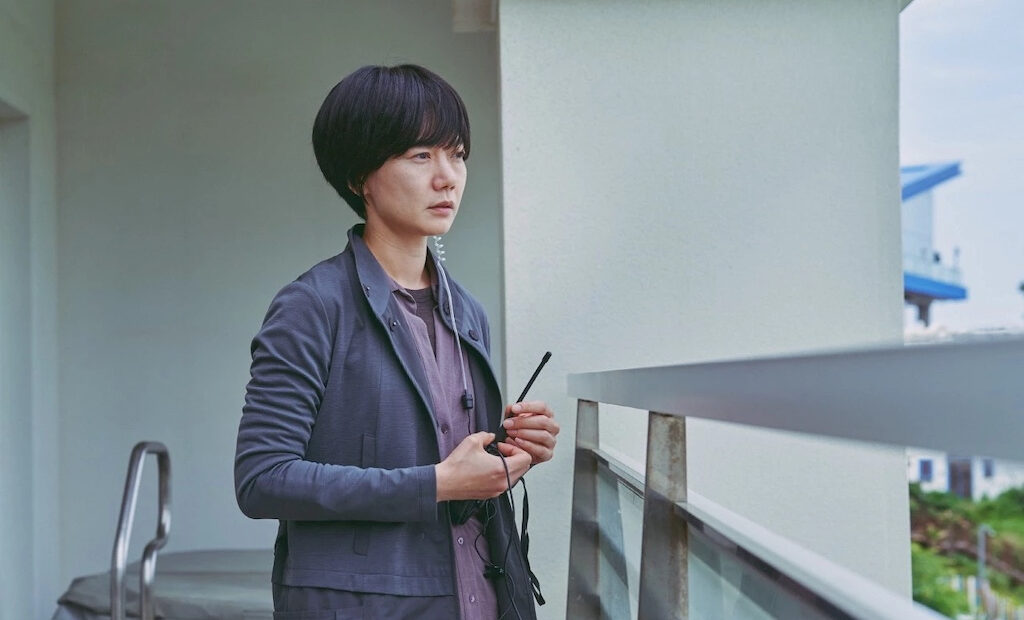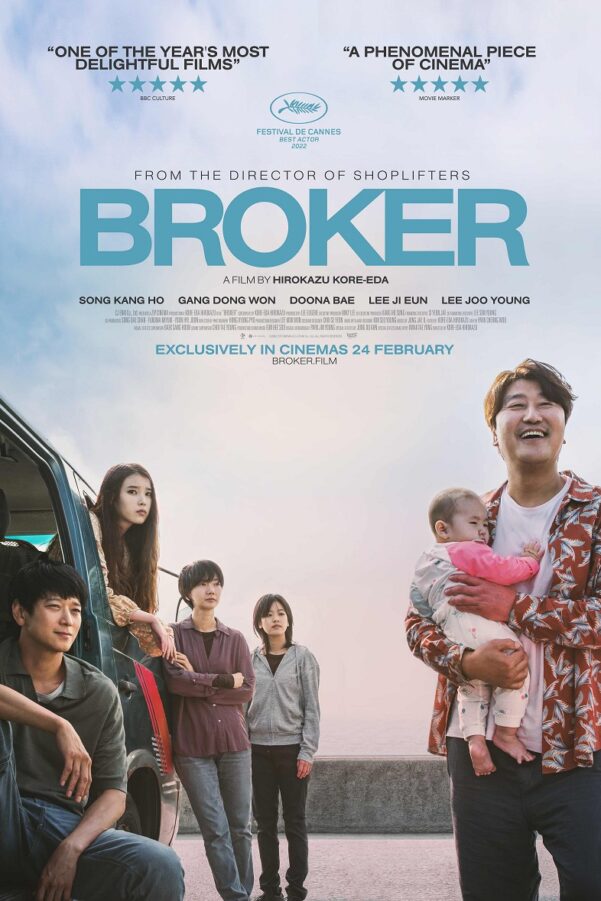“How can we be a family to complete strangers?”: Bae Doona on Kore-eda’s Broker

Amidst the complex and nuanced discussions on topics like the pro-choice/pro-life debate, and stigmas surrounding abortion, adoption and foster systems, the longstanding contraption known as the “baby box” or “baby hatch” in many countries including Japan and Korea is subject to scrutiny. Broker is a film by Japanese director Hirokazu Kore-eda that puts forward these very issues and explores differing opinions and views on the abandonment of children. Set around Children’s Day (celebrated on 5th May in both Japan and Korea), the film stars K-Pop singer IU alongside other renowned Korean actors, including the likes of Song Kang-ho, Gang Dong-won and Bae Doona.
Broker follows two men who kidnap babies left in baby boxes and sells them for profit. They encounter Moon So-young, a mother who has also abandoned her child, but comes back to find him gone. Together, the three individuals travel across the country to find the perfect parents to sell her child to. All the while, two detectives follow on their trail, hoping to catch the men in the middle of the transaction. Doona stars as one of the detectives, who has very complicated feelings about child abandonment. The Upcoming caught up with her to discuss the issue of baby boxes, the found-family aspect of the film, and the continued growth of interest in Korean pop culture.
First of all, can you tell us about your character?
Soo-jin is a detective who, in the film Broker, receives a tip that the characters Ha Sang-hyeon and Dong-soo have a plot to kidnap and sell this baby. She is relentlessly chasing after them in cars and stakes [out] their house in order to catch them.
What is your opinion on the baby box practice? Do you think it causes more harm than good?
I think there were good intentions behind creating the baby box, actually, in order to prevent harm coming to the baby. Just because there are no baby boxes, would that stop people from giving away their babies? I don’t think so. It’s actually somewhere safe; the device was first set up by a church in order to keep the babies safe when whoever wasn’t able to keep the children [gave them away]. I don’t think the baby box itself… I don’t think of it in a harmful way, in a bad way, and I don’t think the existence of baby boxes is why people choose to give their babies away.
The film is filled with themes of children having nowhere to go and how that, in itself, can become a cycle. With such a terrible reality, how important is it to celebrate events such as Children’s Day in Korea?
I don’t think this is a problem specific to Korea – children being given away happens everywhere in the world. Of course, that shouldn’t happen. But I think the story is more about how can we be a family to them, even though we might not share blood ties with them – not just to children who are given away, but to everyone. Even people like me living in modern society – not a baby or a child, but I receive love and support from people around me, not just around Children’s Day. Having these happy moments with people who aren’t blood ties or blood family – this is what alternative families can do for one another. That’s how I see the film and understand the film, rather than it being about Korean society having cases of children being given away. For me, even if it were shot in Japan or anywhere around the world, I think it would be the same story: that modern society, unfortunately and sadly, has these painful stories where people can’t keep or don’t want to keep their children. So, how can we be a family to them and treat each person in a precious and loving way? For me, that was more the important message: how can we be a family to complete strangers?
You have a line in the film: “Can you understand a woman who throws away her baby? I can’t.” Did you do a lot of research to compare different stories of women and their experiences with abortion and adoption to truly understand the heavy nuance of such an expression?
I hadn’t done much research prior, but the dialogue that you just mentioned, this is how I interpret it. The character is thinking, “I’m a woman who has had an abortion; I believe that if you can’t be responsible in having a baby and taking care of the baby after you give birth for various reasons – like maybe right now you’re not mature enough or you have to prioritise work and focus on work, or there are so many other aspects wherein you’re not going to be a good enough mother – if you cannot be responsible to this baby that you gave birth to, it’s better not to have the child in the first place.” In a way, kind of brainwashing yourself with this character’s justification – she keeps saying it to herself in order to justify the actions that she has taken, this character Soo-jin. Therefore, when she’s confronted with a woman who has chosen to have the baby and to give away the baby, there’s this internal whirlwind that comes about, where the justification comes out in that way. So, it’s not a critique of others but a way of protecting herself and her own actions. Maybe I’m just overthinking this and thinking about it too much in-depth, rather than taking the angle of doing academic research and finding out how many people give their child away or get fostered and things like that. For me, it was more of an emotional issue – a problem that was reflected in that dialogue.
Parasite and Squid Games have opened massive doors for Korean media in Western spaces. What do you think of this breakthrough in representation?
It’s truly astounding to me, too… like, what’s going on? You know, Korean culture – K-Pop and K-Cinema – [have] huge interest that’s increasing [the visibility of] Asian culture in general. That feels really good to me, and so surprising to me as well. I think my foreign friends watch more Korean films than I do, and know more about them than I do. I feel proud and pleased that Korean cinema on different scales and smaller scales can still create this content that globally resonates and feels good. I think Korean people can be extraordinary in that way.
Mae Trumata
Broker is released in select cinemas on 24th February 2023.
Watch the trailer for Broker here:


























Facebook
Twitter
Instagram
YouTube
RSS